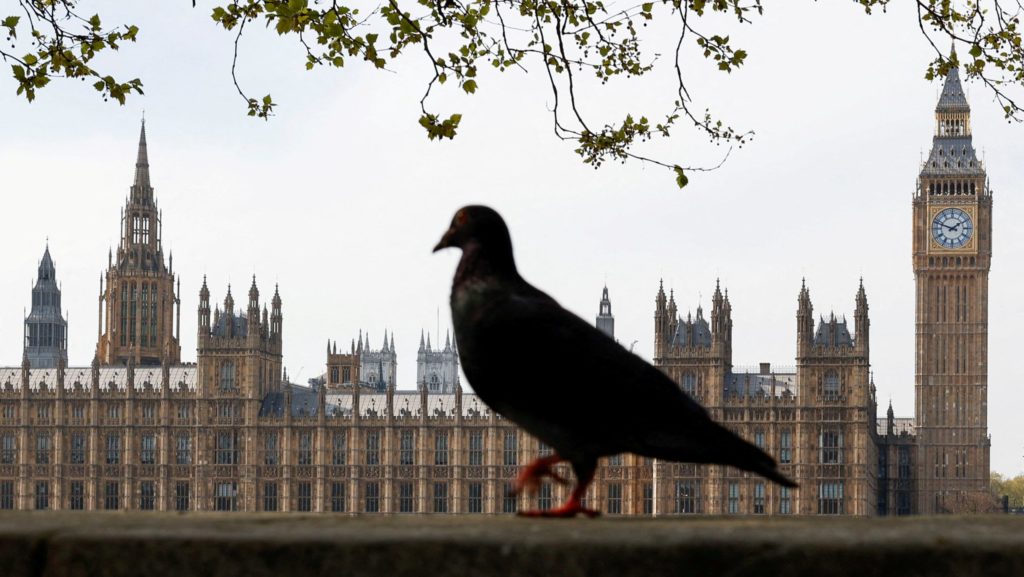English bishops expressed sadness after an assisted suicide bill was passed in the House of Commons by a narrow majority June 20.
Members of Parliament approved the Terminally Ill Adults (End of Life) Bill at a third reading by 314 votes to 291, a majority of just 23.
The vote share indicated a decline in support for the bill because when it received a second reading in November it passed with a majority of 55, by 330 votes to 275.
The bill has now completed all of its stages in the lower chamber of the Houses of Parliament in London and will proceed to a debate and vote in the House of Lords, the second chamber, before it becomes law.
Archbishop John Sherrington of Liverpool, the lead bishop on life issues at the Bishops' Conference of England and Wales, said he was "shocked and disappointed" by the outcome.
"Allowing the medical profession to help patients end their lives will change the culture of healthcare and cause legitimate fears amongst those with disabilities or who are especially vulnerable in other ways," he said in a June 20 statement.
"We are also concerned about the future of palliative care, not least because experience suggests that, unless there are explicit protections, hospices may be required to co-operate with assisted suicide," he said. "If this were to happen, the future of many Catholic institutions could be under threat."
He added: "This is not the end of the parliamentary process, and we should not lose hope."
In a June 20 statement given to OSV News, Bishop Mark Davies of Shrewsbury said the vote was a "sad moment for us all" because it has "opened the door to euthanasia."
"We may be incredulous that such a seismic change to society was effected by what is widely acknowledged to be a deeply-flawed Bill passed after a few hours of debate, albeit with a small majority," he said.
"We can hope that in the House of Lords there may be a reassessment of this legislation with all its dangers," he continued. "We can also take heart in the public witness awakened in opposition to euthanasia and for the value of every human life; concern for safeguarding the sick and the aged in their vulnerability and truly assisting the dying in the provision of palliative care. This must surely remain our priority."
Bishop Philip Egan of Portsmouth said in a statement by telephone to OSV News that the vote for the bill was "an appalling development with massive consequences especially for the sick, the elderly and the vulnerable."
"British society has taken yet another step away from its Christian patrimony," said Bishop Egan.
On June 18, Cardinal Vincent Nichols of Westminster, the president of the Bishops' Conference of England and Wales, had issued a joint statement with Archbishop Sherrington, warning Catholics that the bill could force the closures of church-run hospices and care homes for the elderly.
"Institutions whose mission has always been to provide compassionate care in sickness or old age, and to provide such care until the end of life, may have no choice, in the face of these demands, but to withdraw from the provision of such care," they said.
Introduced by Labour Party MP Kim Leadbeater, the bill will allow adults who are deemed to have fewer than six months to live the right to be assisted in committing suicide by a doctor.
Such applications must be signed off by two doctors and approved by a panel consisting of a social worker, a lawyer and a psychiatrist.
In a June 20 debate ahead of the vote, Leadbeater pleaded with MPs to vote for "a choice for terminally ill people about how they die."
"If we do not vote for a change in the law today," she said, "we will have many more years of heart-breaking stories from terminally ill people and their families, of pain and trauma. … There will be stories of suicide attempts, post-traumatic stress disorder, lonely trips to (Dignitas assisted suicide clinic in) Switzerland, police investigations, and everything else we have all heard of in recent months."
In Switzerland, medical assistance in dying has been decriminalized. According to a July 2024 BBC story, 40 people from the U.K. ended their lives at Dignitas in 2023, "the highest level since 2019."
MPs of all parties were permitted to vote their conscience on the bill, rather than as instructed by their party as is sometimes the case on measures before them. Prime Minister Keir Starmer voted in favor of the bill, and Kemi Badenoch, the leader of the opposing Conservative Party, voted against it.
Catherine Robinson of Right To Life UK, a pro-life charity, said the fight to defeat the bill would continue in the House of Lords.
"Although the bill passed the Commons today, momentum remains with its opponents, with support consistently falling every time MPs have considered it," she said in a statement sent by email to OSV News. "We will be fighting this bill at every stage in the House of Lords, where we are confident it can be overturned given its continued loss of support."

